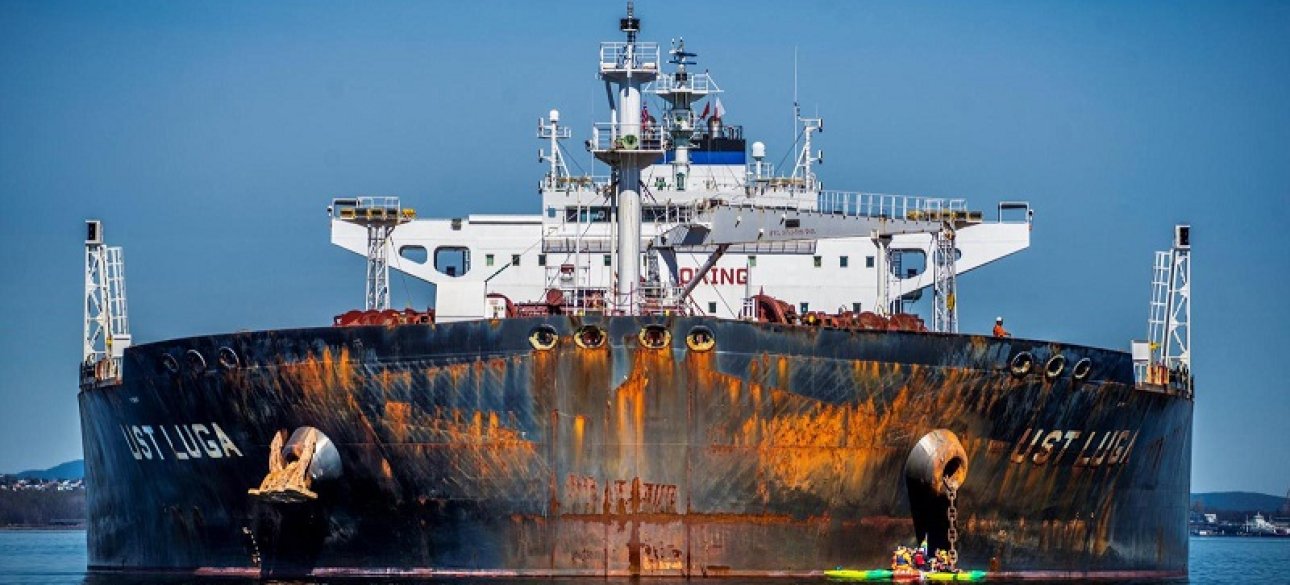
 By Eliza Popova
By Eliza Popova
It is about oil. And about the so -called. The shadow fleet, which became the waterfall of the financial well -being of the Russian authorities and the army. A year later, after the introduction of a price ceiling for Russian oil at $ 60 by Western countries, the main condition for its implementation actually stopped. Almost all of the oil is now transported by the tankers of the shadow fleet that have Western insurance.
The NRC study found a shadow fleet of about 1600 tankers, many of which are old, in poor condition and insured. Suders transport raw oil to countries that have not applied sanctions against Russia, but are trying to refuel home in the ports of the North Sea on the way to take advantage of lower fuel prices.
The shadow fleet allowed Russia to create a parallel navigable structure that can withstand variable tactics, and the orientation of Western sanctions, with hundreds of tankers of opaque owner using complex routes. Windward (artificial intelligence) assesses that this fleet has already grown to 1,800 vessels last year (!). There are estimates in the world today 12 300 oil tankers. This means that Russia controls almost 15% of the global fleet of tankers.
… Several important figures: and this means that oil exports are one of the key factors for filling the budget of Russia (!). And, in principle, it is the largest sector of the economy of Russia. Only VAT, which is approximately 30-35%, gives a large share in the filling of Russia, compared to 32% of the oil and gas or 24% of the oil sector. … Today we see that Russia has learned to go over sanctions, has formed a shadow fleet and successfully manages it.
In 2024, the news is already as follows:… sanctions are far behind the schemes and innovations of Russia. And the most important role in this is played by the copied in Iran know-how-the "shadow fleet". Matthew Wright, a senior cargo transportation analyst in KPler, sorts vessels transporting Russian oil into two categories: "Gray vessels" and "Dark vessels": a monthly fleet is sold every month from 25 to 35 vessels.
… In the end, there are two questions: So, who is behind the fleet? Six little -known companies, including less than a year ago, are involved in exports from Russia about 1. 5 million barrels of oil a day, Bloomberg reports.
This is enough to cover the overall demand of Britain or Italy, that is, firms have become one of the largest resource traders in the world are these companies: Nord Axis documents show that Azerbaijan's citizen Adalas Casimli became the owner of all ordinary stocks of the company in May and then in June He handed over to their holding company from Dubai. It was considered the director of Nord Axis during the month from May to June 2022.
After the resignation of Kazimla, the director of the company was stated by a lawyer from Istanbul Murat Sayin. Documents dating from March and August 2022 show that Casimli had an assignment on behalf of Coral in Turkey and signed documents as a representative of the company. They also show that Sain was a lawyer who works on Coral in Turkish business. But the formal organizer of the oil trading empire is a citizen of Azerbaijan Eyyuba (Eyub). Is he the main one? No. The main person is Sench.
Igor Sechin is a Russian toplesser, President of Rosneft Oil and Gas Company. American diplomats in Moscow are unofficially considered the second person in Russia after Putin. Ayuub - the nominal and manager of the project, who has repeatedly publicly illuminated with Sechin. But what is interesting. There are still no sanctions about Eyububa nor Garayev. And the main question of what to do with the shadow fleet? As we can see, the shadow fleet is growing.
Russia's revenues from oil exports are increasing. Aggression against Ukraine continues. Private companies of the US, EU, UK continue to buy petroleum products from Russian oil. Ukraine needs to show an example and impose (!) Sanctions against both famous shadow fleet courts, and against all companies that own them, manage and use services. But the main thing is to impose sanctions against the mentioned denominations mentioned. Yes, Ukrainian sanctions will not give a significant direct action.
But how can we require partners not to supply the aggressor with oil dollar, if we close our eyes to the obvious things for all things? Some countries have already begun to impose sanctions: Ukraine is still silent for some reason . . . … The next step is to create a "oil Ramstin" - a coalition of partners to limit Russia's capabilities to circumvent sanctions. Sanctions should be applied: the world is afraid of high oil prices through embargo for Russian oil. But no one offers the embargo (!).










All rights reserved IN-Ukraine.info - 2022